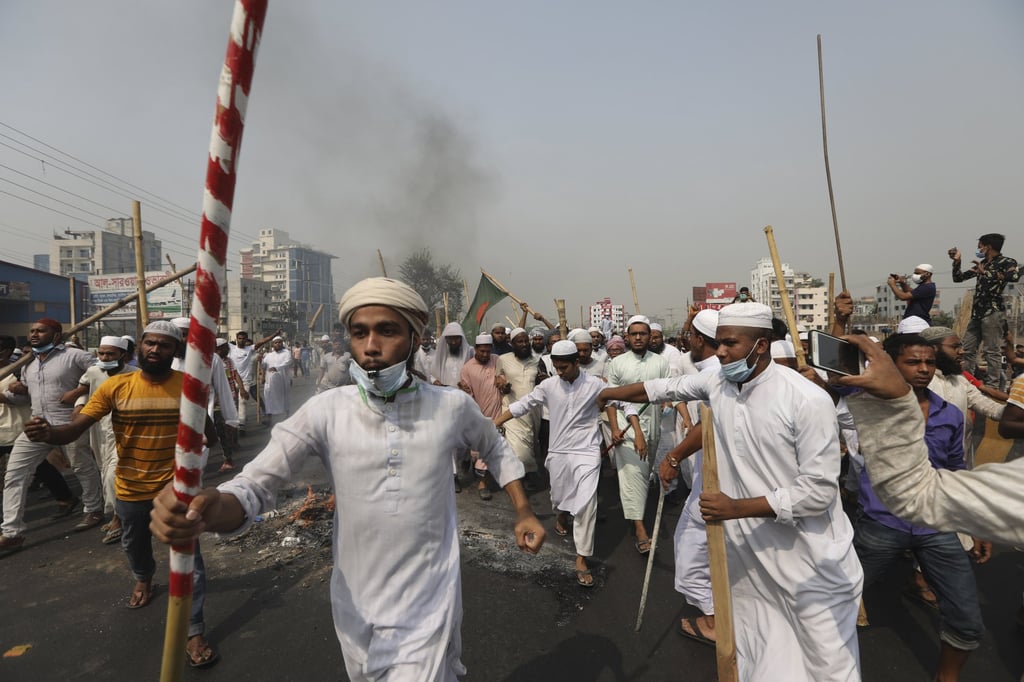Advertisement
Eye on Asia | Why India-Bangladesh economic relations are at their warmest yet – and what could trip things up
- Bangladesh relies on India’s backing in tackling terrorism and economic issues, while Bangladesh is key to Modi’s vision of economic connectivity
- But long-standing water disputes and Bangladesh’s warming ties with China may become areas of concern
Reading Time:3 minutes
Why you can trust SCMP
2

Indian Prime Minister Narendra Modi’s recent visit to Bangladesh, his first foreign visit since the Covid-19 pandemic broke out, marked an important step forward in warming bilateral ties. Under the governments of Modi and Sheikh Hasina, relations are at an all-time high and many border disputes have been settled amicably.
The two countries signed a landmark land border agreement in 2015 and have also agreed on a maritime border after accepting the arbitration verdict under the United Nations Convention on the Law of the Sea in July 2014.
The South Asian neighbours have good reasons to wish for a flourishing relationship. Bangladesh has made great economic strides in recent years and is expected to soon graduate from the UN list of least-developed countries. Good ties with India are important to support its continued economic progress.
Second, Prime Minister Sheikh Hasina’s government has been hounded by Islamists and India’s backing is important. Home-grown terrorism remains a threat and memories are still fresh of the 2016 Holey Artisan cafe attack in Dhaka, in which 22 people, mostly foreigners, were killed.

Third, since coming into power, Modi has been keen to promote good relations between India and the other members of the South Asian Association for Regional Cooperation (SAARC), in what has been described as a “neighbourhood first” foreign policy.
This was seen in the unprecedented move to invite SAARC heads of state to his inauguration in 2014. Modi has had very little success with Pakistan and Nepal – but the reception he received in Bangladesh has been different.

Advertisement
